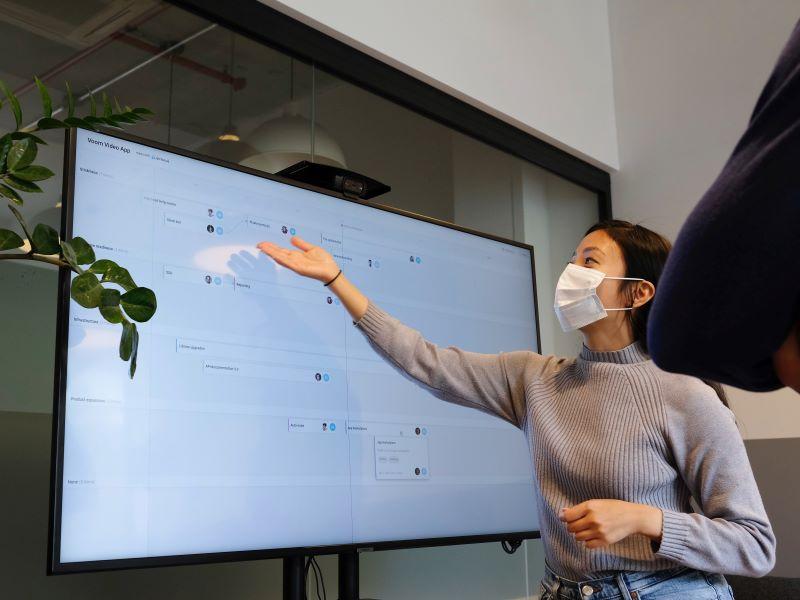Huge disparities exist across UK higher education. While staff at long-established universities have significant time and resources to devote to research and publishing, often with less than 10 timetabled hours of teaching per week, tutors of higher education in mixed-economy colleges have far less capacity for research. Such tutors tend to be involved in the delivery of further education programmes and have higher teaching benchmarks than lecturers at traditional universities.
Yet research and scholarship are vital to building the profile and status of institutions and individual faculty across the whole higher education spectrum. Individual faculty’s employability is directly tied to their research output and contribution to scholarship within their discipline.
This calls for greater exploration of the different forms that scholarship can take. In 1990, American educator Ernest Boyer introduced four categories of scholarship in his book Scholarship Reconsidered: Priorities of the Professoriate.
- Scholarship of discovery: original research that expands knowledge in a field. This is the research at the long-standing universities, perhaps involving new theories or evidence-based studies.
- Scholarship of application and engagement: involvement of faculty with external figures, perhaps industry, to share and apply expertise and knowledge to problems and challenges.
- Scholarship of integration: synthesis of information across disciplines or across topics within disciplines to contextualise new knowledge and generate new associations.
- Scholarship of teaching and learning: study of the teaching and learning process with material communicated to peers and the public to enable ideas and practices to be extended and reproduced by other scholars.
Here, we focus chiefly on the increased recognition of scholarship for teaching and learning. This recognition extends to powerful bodies across higher education. The Quality Assurance Agency’s (QAA) degree-awarding powers (DAP) documents regarding the pedagogical effectiveness of staff certainly allow, if not call for, the scholarship of teaching and learning. And anyone who has successfully made an application for fellowship to Advance HE will know this form of scholarship is central to the criteria and reflection that the tutor must demonstrate. Its relevance has also been picked up by the leading college sector body, the Association of Colleges, which ran a scholarship project based around teaching and learning backed by the Higher Education Funding Council for England (HEFCE).
Integrating scholarship with teaching
The scholarship of discovery, that is, traditional academic research at established universities, is likely to be the most time-consuming and resource heavy to run alongside teaching. As well as the allocated hours for such work at historic institutions, another advantage they offer is a raft of available doctoral students who can act as research assistants doing the evidence work around principles developed by more senior faculty.
The scholarship of teaching and learning is the most feasible form for college or early career university tutors to pursue, particularly as their teaching roles can readily feed into the scholarship.
The quality assurance documents higher education tutors must produce can provide strong foundations and substance for the study of teaching and learning. These include module and course reviews, rationales for changes to assessment design and planning documents for new course and curricula development required for validation by the institution.
Most college tutors must complete teacher training courses and have access to further post-PGCE courses as part of their ongoing professional development. This provides a basis from which they can develop theories, pedagogies or andragogies.
The inherent importance attached to student feedback means that there is scope and facility, with ethics approval, to gain primary research data relating to these theories.
Publishing options for teaching-focused scholarship
The imperative to “publish or perish” is not as sharply felt by faculty outside the top research-heavy universities. But there are a sizeable and growing number of journals related to generic higher education teaching and subject-specific pedagogy or andragogy. Examples include Practitioner Research in Higher Education, set up by the University of Cumbria and Practice and Evidence of the Scholarship of Teaching and Learning in Higher Education from the University of Oxford.
Alongside primary research, these journals invite papers in the category of “evaluation of practice”, where tutors can look at teaching practices in the context of education literature and evidence, with a view to advancing learning, assessment and curriculum design.
With regard to advances and reflections on teaching and learning, THE Campus is a new relevant outlet for conveying insight to peers across the sector.
For subject-specific teaching scholarship, journals and professional publications cover every major field and a sizeable conference circuit, facilitated by Advance HE, through which tutors can present and discuss work.
One of our recent papers, “‘Assessing’ the Brexit deal”, published in Teaching Business and Economics by the EBEA, which looks at incorporating the Brexit deal into a business degree assessment, appears on Google above many other academic and journalists’ papers on assessing the Brexit deal due to its wording. This is just one example but demonstrates the scope for college-based higher education tutors to produce meaningful work and contribute to the scholarship of teaching and learning.
Linking with other forms of scholarship
Other forms of scholarship – integration and application – can readily attach to the study of teaching and learning and be achieved within the scope of a college tutor’s role. The tutor is able to readily apply new teaching theories and pedagogies in their own classroom and collect evidence via student feedback of their efficacy.
Teaching on broader modules such as careers, study skills or professional development may generate scholarship that synthesises across disciplines, thus creating opportunities for the scholarship of integration.
With much of higher education vocationally and often industrially linked, teaching can also take the form of training and even consultancy at or with external organisations, constituting the scholarship of application and engagement.
Both universities and colleges can further enhance their scholarship by fostering communities of practice, where staff can share and develop their knowledge. Institutions should dedicate time and resources to cross-curricular meetings and discussions and guest speaker talks. The communities of practice initiative at University Centre Grimsby is an example of this.
A focus on quality education
Any graduate of a top university knows that eminence in research does not guarantee high-quality teaching from every faculty member. Scholarly activity focused on teaching and learning is far more likely to feed through to positive educational experiences for students.
With a major focus on widening participation and supporting students who may not have thrived at school, the scholarship of teaching and learning is arguably the most fit-for-purpose form of study within younger universities and colleges – but is also important in older institutions.
At the sector policy level, heightened debate about research metrics and the importance of their connection to positive impacts, alongside the increased focus on student satisfaction, may lead to greater value being placed on the scholarship of teaching and learning.
Russ Woodward and Tim Veal teach on the business degree programmes at University Centre Grimsby, part of the TEC Partnership.
If you found this interesting and want advice and insight from academics and university staff delivered direct to your inbox each week, sign up for the THE Campus newsletter.




comment